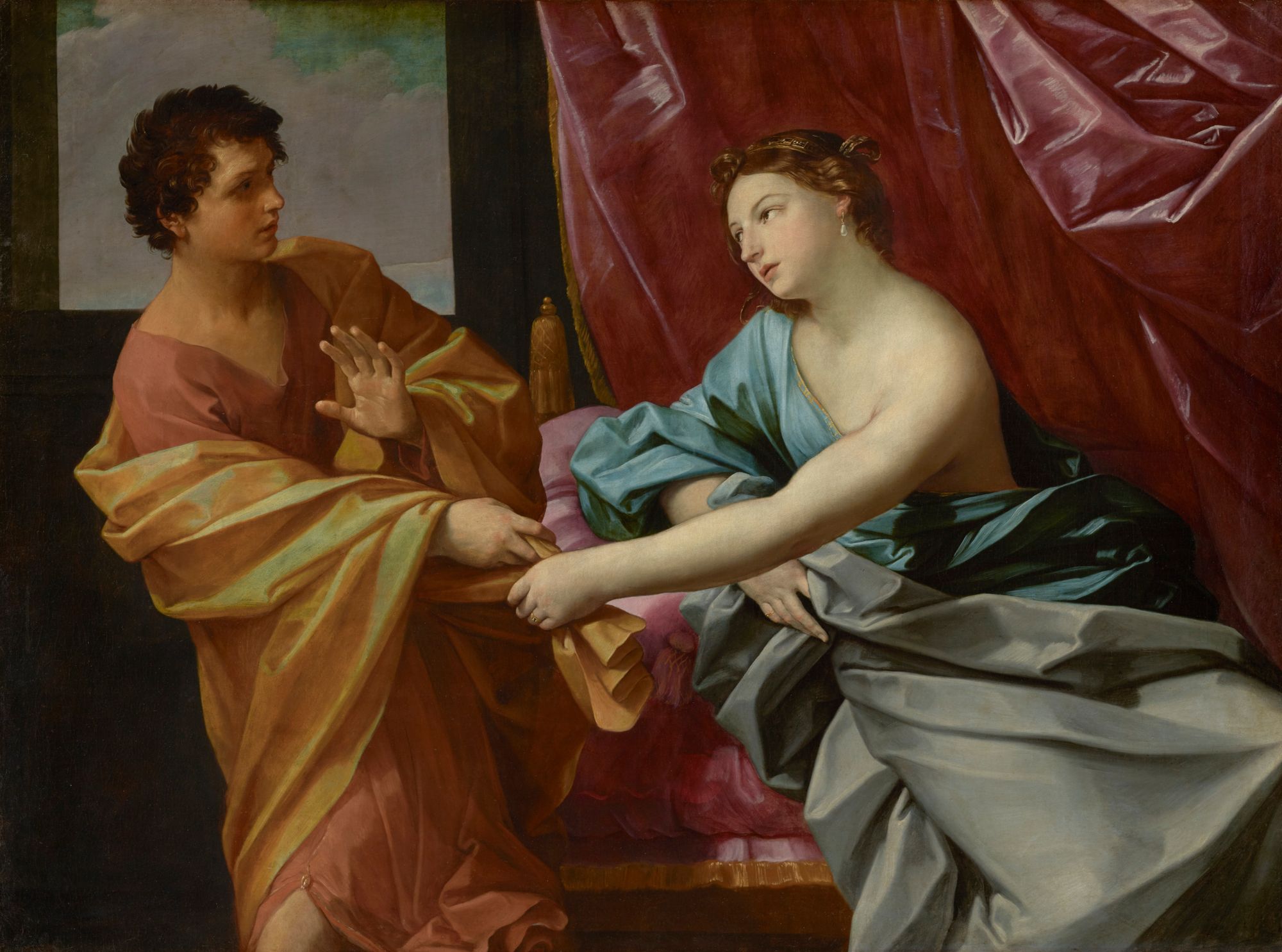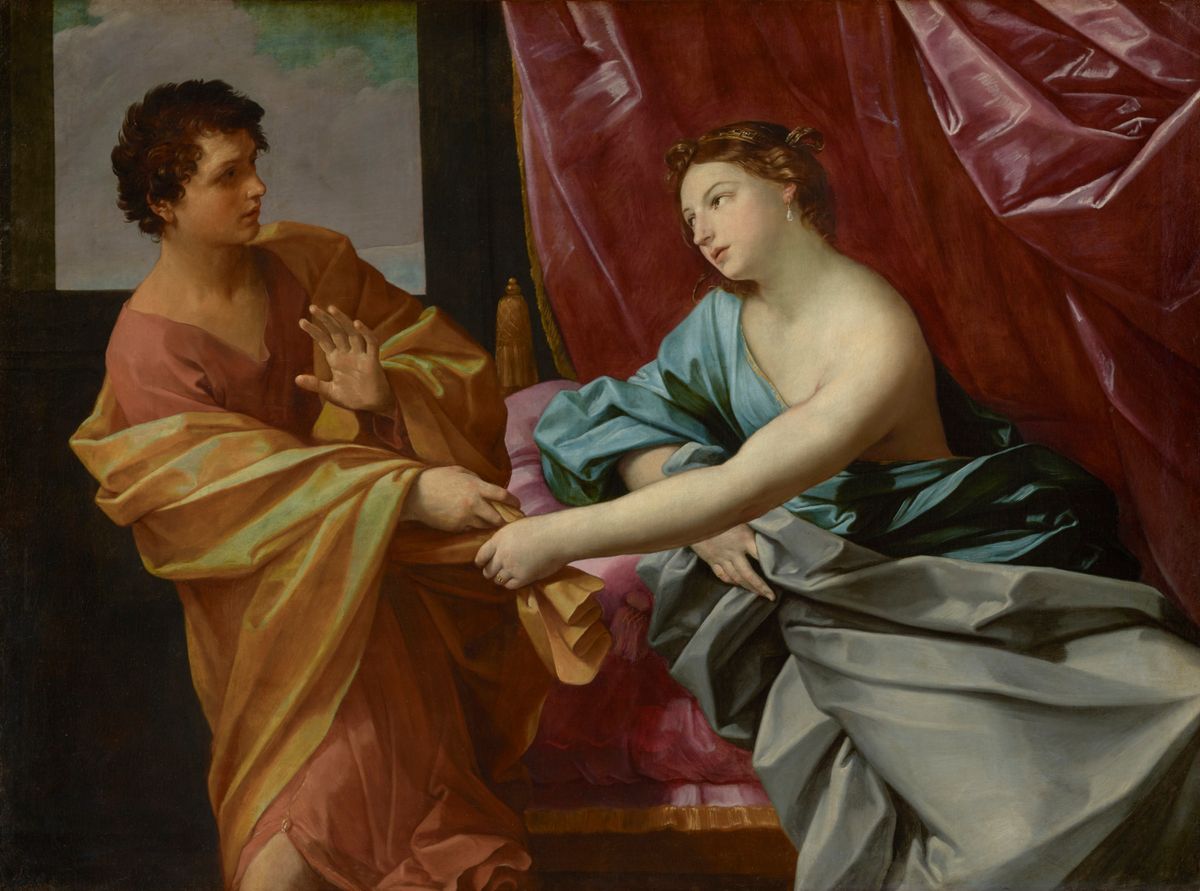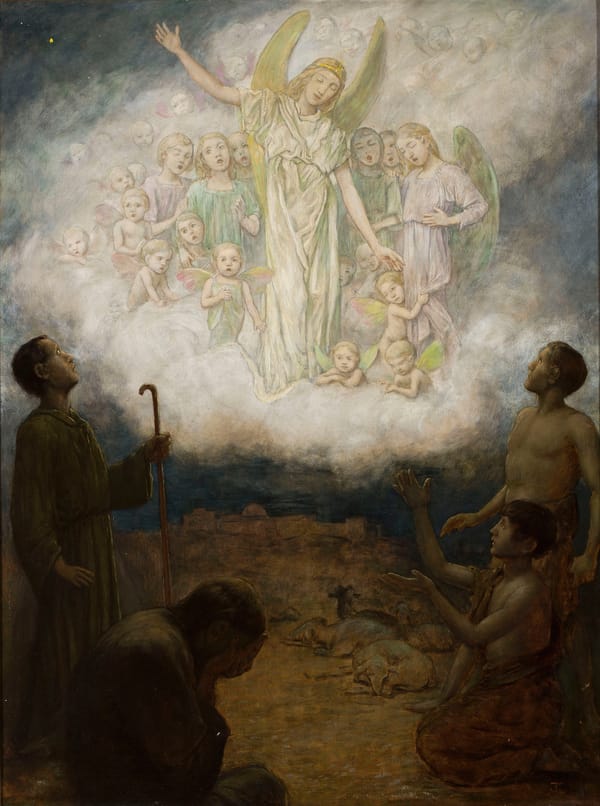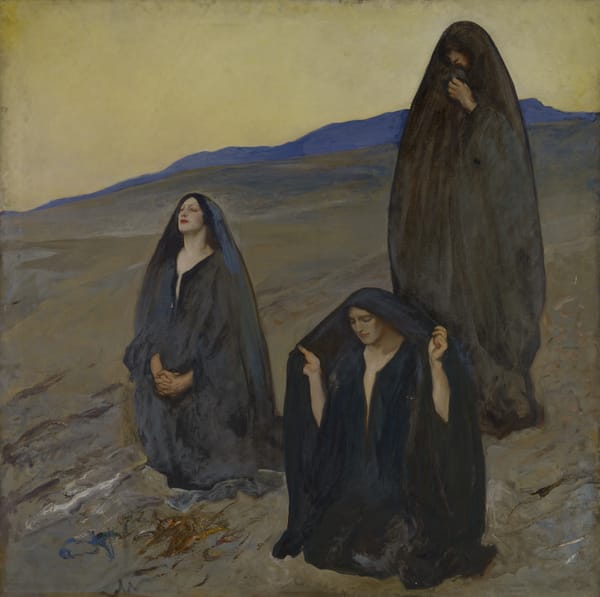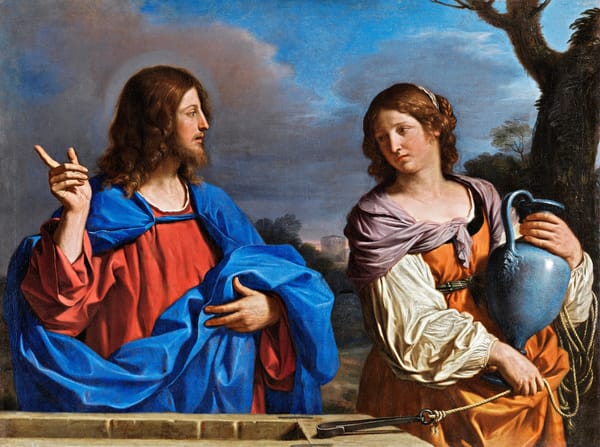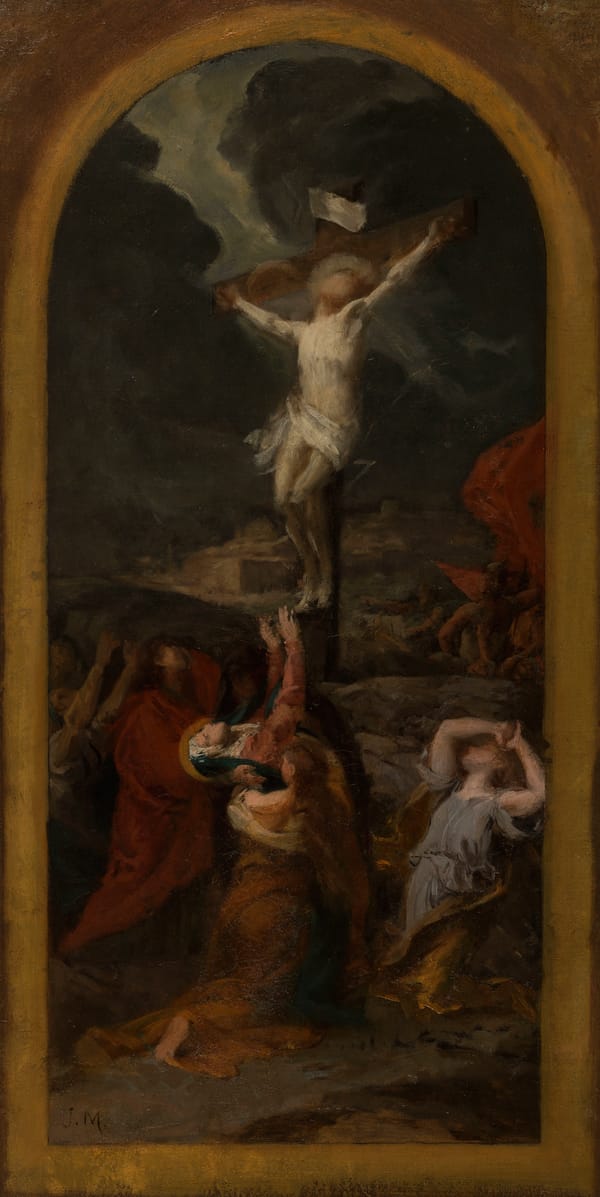Genesis (39:7–20) tells how Joseph, sold into slavery by his jealous brothers, was bought by Potiphar, captain of Pharaoh's guard. Potiphar's wife (who is not named in the Bible) took a liking to the young man and made several failed attempts to seduce him. Here, Reni illustrates one such occasion—the wife clutches Joseph’s robes, pleading with him to make love to her. The virtuous Joseph turns to flee, leaving a fragment of his torn cloak in her hands. Humiliated, the vengeful wife accused Joseph of rape, using this piece of fabric as evidence. Joseph was promptly thrown into prison, where his interpretation of the dreams of other inmates eventually lead to his rise in Pharaoh's household.
Moralizing narratives such as this one found popularity in seventeenth-century Europe where, in the spirit of Counter-Reformation sobriety, they served as a warning against the dangers of carnal desire and of the female temptress, and to instruct viewers on combatting the temptation of sin. This scene, however, conveys the message that virtue and integrity are not always immediately rewarded, but require patience and faith in God. The subject also proved a suitable opportunity for the Bolognese master, Guido Reni, to showcase his widely-celebrated skill in drapery painting.
Free Downloads Below
Hi-Res
1200px
800px
